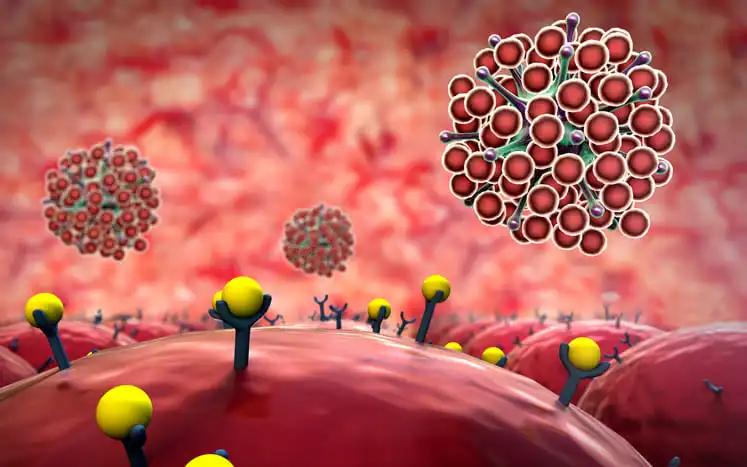KEY TAKEAWAYS
- The PACIFIC-R Phase III trial, registered under NCT03798535, aimed to assess the real-world effectiveness of durvalumab in patients, with investigator-assessed rwPFS and overall survival as primary endpoints, analyzed by the Kaplan-Meier method.
- PACIFIC-R is an ongoing, international, retrospective study of patients who started durvalumab within an early access program.
- The study revealed that patients who received concurrent CRT had longer rwPFS than those who received sequential CRT, with higher PD-L1 expression.
The use of durvalumab as a consolidation therapy for patients with unresectable stage III NSCLC and no disease progression after definitive chemoradiotherapy (CRT) was established as the standard of care by the phase 3 PACIFIC trial. The observational PACIFIC-R study was conducted to evaluate the real-world effectiveness of durvalumab in patients from an early access program. The study provided information on the treatment characteristics and a pre-planned analysis of real-world progression-free survival (rwPFS).
The PACIFIC-R study is a retrospective international study that is still ongoing. It involved patients who commenced durvalumab (10 mg/kg intravenously every two weeks) within an early access program between September 2017 and December 2018. Investigator-assessed rwPFS and overall survival (analyzed using the Kaplan-Meier method) are the study’s primary endpoints.
By November 30, 2020, the complete analysis set included 1,399 patients from 11 countries with a median follow-up duration of 23.5 months. These patients were treated with durvalumab for a median of 11.0 months. The median time to recurrence or death without new disease sites was 21.7 months (95% confidence interval: 19.1-24.5). Patients who received concurrent CRT had a longer median rwPFS than those who received sequential CRT (23.7 versus 19.3 months), and those with programmed cell death-ligand one (PD-L1) expression greater than or equal to 1% had a longer median rwPFS than those with less than 1% (22.4 versus 15.6 months). Despite these variations, favorable rwPFS outcomes were observed regardless of these factors. Adverse events causing treatment discontinuation occurred in 16.5% of patients, with pneumonitis or interstitial lung disease leading to discontinuation in 9.5%. The study concluded that consolidation durvalumab after definitive CRT was well tolerated and effective.
Source: https://pubmed.ncbi.nlm.nih.gov/36307040/
Clinical Trial: https://clinicaltrials.gov/ct2/show/NCT03798535
Girard N, Bar J, Garrido P, Garassino MC, McDonald F, Mornex F, Filippi AR, Smit HJM, Peters S, Field JK, Christoph DC, Sibille A, Fietkau R, Haakensen VD, Chouaid C, Markman B, Hiltermann TJN, Taus A, Sawyer W, Allen A, Chander P, Licour M, Solomon B. Treatment Characteristics and Real-World Progression-Free Survival in Patients With Unresectable Stage III NSCLC Who Received Durvalumab After Chemoradiotherapy: Findings From the PACIFIC-R Study. J Thorac Oncol. 2023 Feb;18(2):181-193. doi: 10.1016/j.jtho.2022.10.003. Epub 2022 Oct 25. PMID: 36307040.



